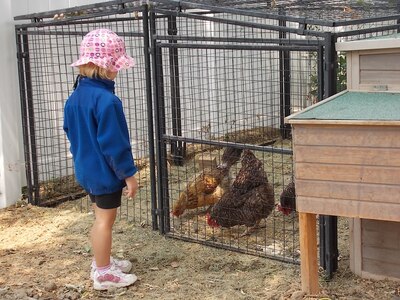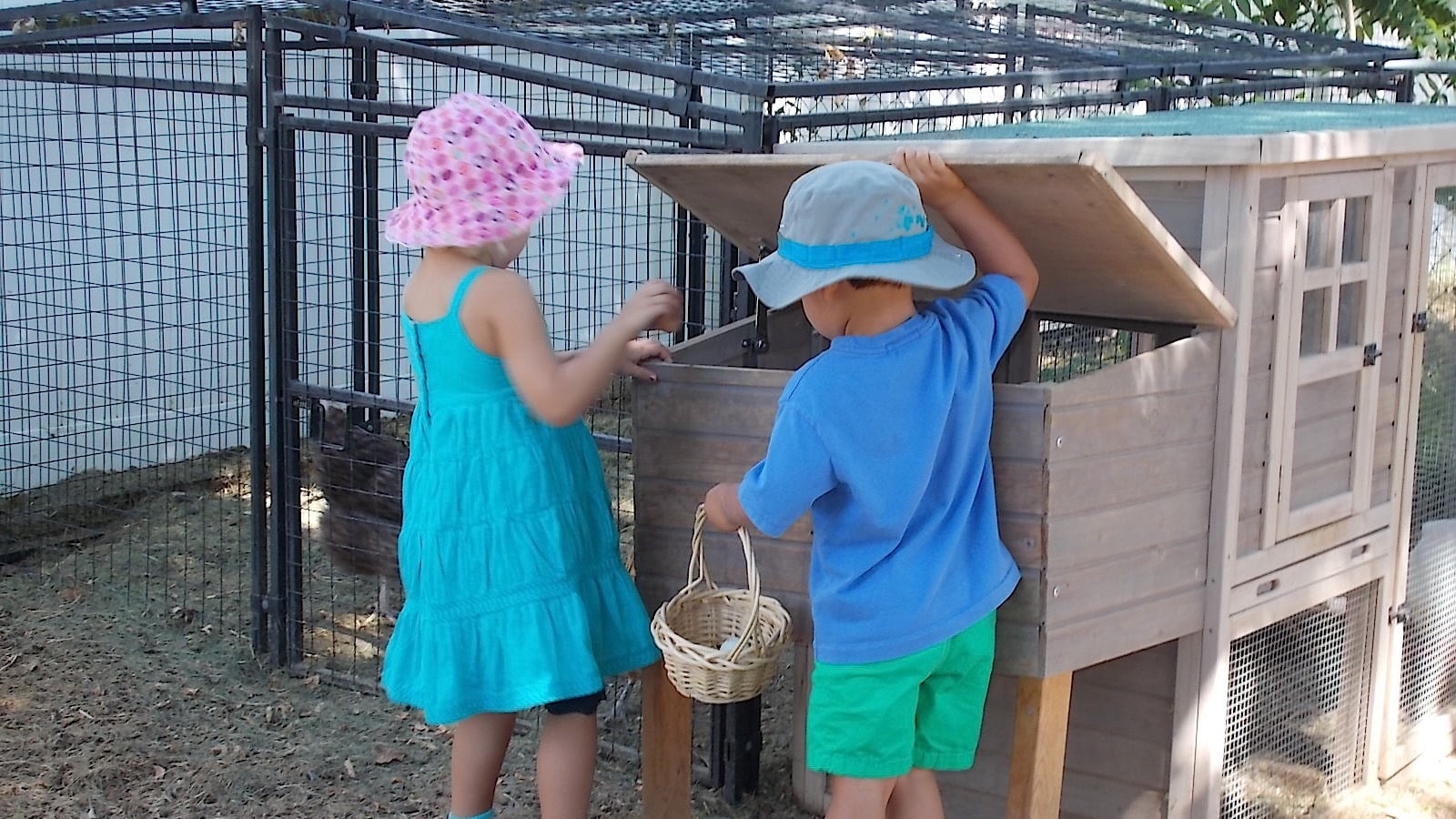The preschoolers and kindergarteners at Countryside Montessori in Boulder lovingly care for the 10 hens that scratch around a large chicken run on the school’s one-acre lot. The students feed them grass and dandelions through the fence and don latex gloves to collect their eggs.
The whole idea at this and other schools that keep chickens is to foster hands-on learning and forge strong connections to the natural world.
Now, Big Mama, Super Chicken and their peers hunting and pecking on preschool grounds across Colorado may have to fly the coop.
A new state health rule that went into effect Jan. 14 forbids live poultry, including chickens and ducks, at licensed child care facilities. Health officials say it’s a common-sense effort to reduce the risk of salmonella, a type of food poisoning that causes diarrhea, fever and stomach cramps.
Center directors, however, argue that chickens are a safe, longstanding and much-loved part of their programs. They say the ban is an example of excessive regulation that threatens to further disconnect kids from nature.
More than 1,670 people have signed an online petition opposing the rule and even Temple Grandin, a Colorado State University professor renowned for her work in the livestock industry, has weighed in on the issue.
The poultry rule, part of a larger set of health rule changes, applies to child care classrooms serving kindergarteners and younger children. (A similar rule, that took effect April 14 last year applies to kindergarten classrooms in schools.)
Standing with state health officials in support of the rule package are a gaggle of health and early childhood organizations including Children’s Hospital Colorado, the Colorado Health Foundation, the Colorado Children’s Campaign, Livewell Colorado and Qualistar Colorado.
“Salmonella is something we’re constantly fighting. It’s not a rarity,” said Therese Pilonetti, unit manager for the state health department’s division of environmental health and sustainability.
That said, the health department couldn’t provide Chalkbeat with data on salmonella outbreaks related to live poultry in Colorado, and offered national data instead.
Nancy Ahlstrand, director of Countryside Montessori School, said she believes the new rule hatched from the state’s desire to avoid a lawsuit rather than a true need to address child safety.
“This rule is utterly ridiculous,” she said.
A teaching tool
The state health department doesn’t track how many Colorado child care facilities keep chickens or ducks, but it appears there are a dozen or more—many of them Montessori or Waldorf-themed.

Countryside Montessori has kept fowl since it opened 28 years ago.
“It’s the greatest opportunity in the world for city kids to be exposed to some element of where their food comes from,” Ahlstrand said. “It’s an integral part of our program.”
Abby Miller, the director of a Montessori preschool in Boulder County, said her center’s four chickens—Ginger, Tilly, Dandelion and Twinkydink—live in a fully enclosed pen. The children can collect eggs from a nesting box accessible from outside the pen, but they don’t walk in the pen or pick up the chickens. And they always wash their hands after collecting eggs.
Like Ahlstrand, she said she’s never had a case of salmonella at the center, which she asked not be named.
“Of all the things that we do, the chickens seem like one of the least concerning. If someone gets hurt here, it’s going to be a fall or something,” said Miller.
Pilonetti said there have been 45 salmonella outbreaks nationwide since 1990, according to the Centers for Disease Control and Prevention.
Children under 5 are most likely to get salmonella, which can come from eating contaminated foods like poultry, meat or eggs, from contact with live animals such as chickens, ducks, lizards, turtles and snakes, or from contact with certain animal habitats or enclosures.
Amphibians and reptiles are also prohibited as classroom pets at child care facilities, but that rule isn’t new.
Enforcement coming
With the poultry rule only a few weeks old, Pilonetti said no health inspectors have yet encountered the issue.
Any violation of the rule will be considered a “critical violation.” While such violations typically must be remedied within 10 days, Pilonetti said there may be some leeway since it can be challenging to relocate live animals.
“Given a reasonable amount of time, we will take it very seriously,” she said.
Pat Waddick, director of Mt. Sopris Montessori Preschool in Carbondale, said she’d be sad to part with the center’s three chickens—known as “the girls”—but would if her child care license depended on it.
“I guess I’m just going to have to wait and see,” she said.
The following statements are from Temple Grandin and Democratic State Sen. Irene Aguilar of Denver. Grandin emailed her statement to opponents of the poultry rule. Aguilar posted her statement on the petition site.
“When I was a child, we played in the dirt, and I often visited a flock of chickens that lived next door. Children need to have contact with chickens, other animals, and the natural world. We are so worried about a possible health problem that kids do not get the opportunity to learn that there is more to life than electronics. When kids get addicted to electronics, it stifles their creativity. They need to learn that there is a big wondrous world that is more interesting than electronics.” —Temple Grandin
“I certainly support the opportunity of children to learn the many lessons afforded by pet ownership, I also understand the need to keep little ones, and especially the very young, safe from any kind of disease. As a physician, I am particularly aware of how quickly infectious diseases can spread among little children who are know for touching and holding everything in sight. For this reason, I think the lessons that children can learn from animals are available without adopting chickens and ducks and the potential risk they may pose.”—Irene Aguilar

